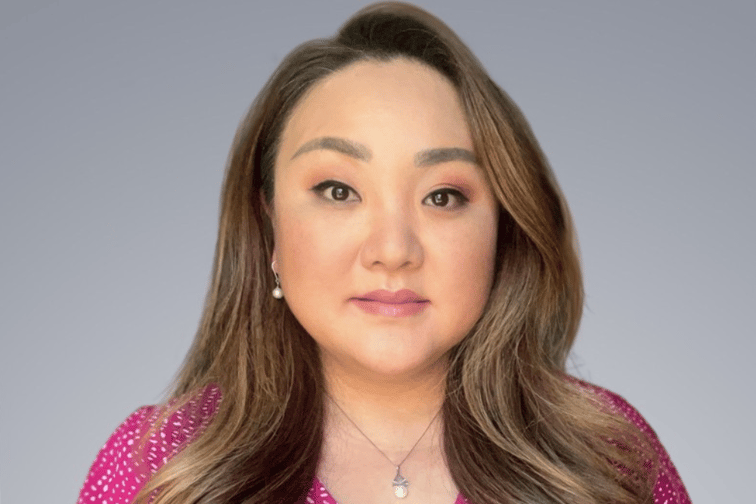

It’s no secret that many women have faced stress and pressure in the wake of the “new normal.” Juggling heavy workloads both at home and in the office, women are more likely to burn both ends of the candle – and find themselves burning out.
Deloitte’s 2022 Women at Work survey, which polled 5,000 professional women in 10 countries, showed alarming levels of burnout and stress. Fifty three percent said their stress levels were higher than the previous years, while nearly half reported “poor or very poor” mental health.
Angela Lee (pictured), senior vice president – regional claims director, southeast at Marsh McLennan Agency (MMA), can attest to feeling burnout and fatigue during her 21 years in the insurance industry.
“I’ve certainly felt it at various points throughout my career,” said Lee. “One thing that I’ve learned recently is that prioritizing self-care is critical. It’s been challenging at time to find the time to squeeze in activities.
“I have a rule where if it’s on my calendar, it’s going to happen. So, I found that it’s been helpful for me is to schedule time. I make appointments with myself, whether it’s just to go out to Starbucks, or to meet a friend or a colleague for lunch, just to take a step away from my desk.”
Lee, who is set to speak on a panel at the Women in Insurance Atlanta summit in March, knows all too well how difficult it can be to switch off while working from home during COVID-19. Having joined MMA two years ago at the height of pandemic, she was also determined to prove herself in her new role.
“There was never a time to turn off because your computer was always there. I felt like it was probably working longer hours and taking on more work,” the insurance head recalled. “There’s a lot of stress that comes with trying to prove yourself in a new role and get a sense of the company and your responsibilities.”
For Lee, internal pressure plays a significant role in women’s burnout levels. Managing their roles at home and at work can be immensely taxing for women, who often find themselves the primary caretaker of their children. But women also need to champion each other during difficult times by showing empathy, she said.
“I think we often feel like we must do more than our male counterparts to show our worthiness in particular role, especially the higher up we go,” Lee explained. “The internal pressure causes us to stay up and work late, work weekends, and sometimes even carve out time from our families just to be able to prove ourselves.
“Because we do hold ourselves to a higher standard, I have often found that women can be tough on each other. We hold each other accountable, which is great. But I think we need to do that in an empathetic way, and to be an ally and support for each other.”
The vicious cycle of internal pressure and burnout can take a toll on working women. Lee said this was especially heightened for her during COVID-19, but it’s also helped her develop more perspective about her work-life balance and mental health.
“You get to a point where you’re like, ‘What am I doing this for?’” Lee said. “It gives you some perspective about what’s important, about valuing your mental health and being at your best so that you can lead your team the right way. It made me think about what I could do better, and the fact that I do need to prioritize.”
Instituting much-needed changes in her daily routine, work prioritization, and self-care habits have made a huge difference for Lee. As an insurance leader, she wants to ensure her staff can overcome excessive fatigue. The key, she said, is communication.
Burnout is contagious. It creates both upstream and downstream implications for everyone involved.
— Google Cloud Tech (@GoogleCloudTech) December 26, 2022
So, how can you prevent burnout?
Set healthy boundaries. pic.twitter.com/Yw83qfSPig
“I encourage my team to be open and frequent in their communications. I have regular catchups with them to ask, ‘How is your workload? Are there concerns with the volume? Do you have issues with capacity?’ and I want them to be vocal and honest,” Lee explained. “It helps to have meaningful discussions about managing the workload, especially if adjustments need to be made.
“There are many different ways now to take away some tasks that are contributing to fatigue so that claims professionals can focus on more meaningful tasks.”
And contrary to what some may believe, burnout isn’t cured by simply taking a holiday. Leaders must address the underlying causes of stress among their staff if they want to see meaningful improvements in morale and avoid turnover.
“If I take time for some rest and relaxation, certainly that can ease the exhaustion in the moment. But it doesn’t address the root issues of the burnout, which is often your workload, time commitments, and obligations you have with internal and external stakeholders,” Lee said.
The annual Women in Insurance Atlanta summit aims to spotlight women and their achievements and contributions to the industry. Register now for the in-person conference, which will be held at the Sheraton Atlanta Hotel on March 2, 2023.
